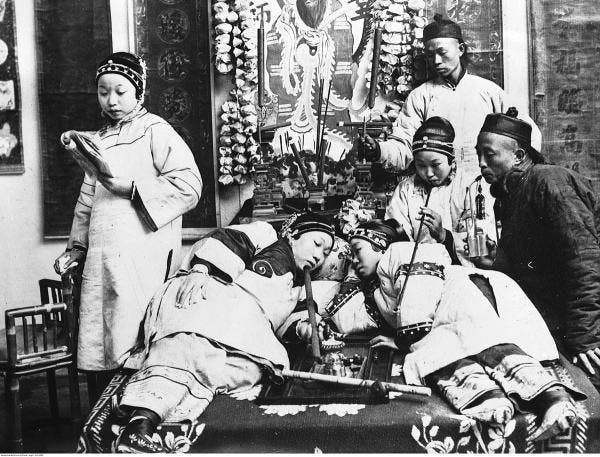Wikipedia - Unknown author - Public Domain
Repenser la réforme des politiques des drogues au siècle asiatique
Les origines de la prohibition des drogues en Asie révèlent à quel point les intérêts économiques ont été privilégiés par rapport aux préoccupations sociétales et sanitaires. Pour en savoir plus, en anglais, veuillez lire les informations ci-dessous.
By Toby Seddon / Social and Legal Studies
Origin stories are perennially fascinating. This is partly because of our intuition that beginnings are important and that they may sometimes provide a clue to hidden or buried truths. Origin stories further appeal by drawing on our deep human attachment to narratives and story-telling. For sociologists, they have proved to be central to the critical analysis of social policy because of the ways in which the framing of social problems is so often shaped by the creation of particular narratives about their origins.
The origin story of global drug prohibition has been told many times and in many ways. One persistent version – partly influenced by a narrative template first set in classic works in the 1960s and 1970s by Howard Becker, Alfred Lindesmith and David Musto – holds that prohibition is a twentieth-century phenomenon, created, driven and led by that century’s superpower, the United States. The prototype for this framing is the notorious Federal Bureau of Narcotics chief Harry Anslinger’s racist campaign against ‘marijuana’ in the 1930s. But it has been revisited many times since, perhaps most (in)famously in relation to Richard Nixon’s declaration in 1971 of a ‘war on drugs’. The idea that this American-led war has been a total failure has become almost a shibboleth for drug policy experts today.
